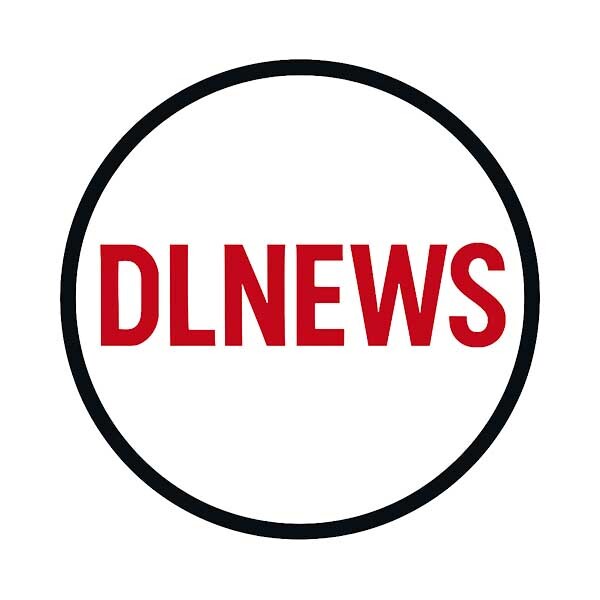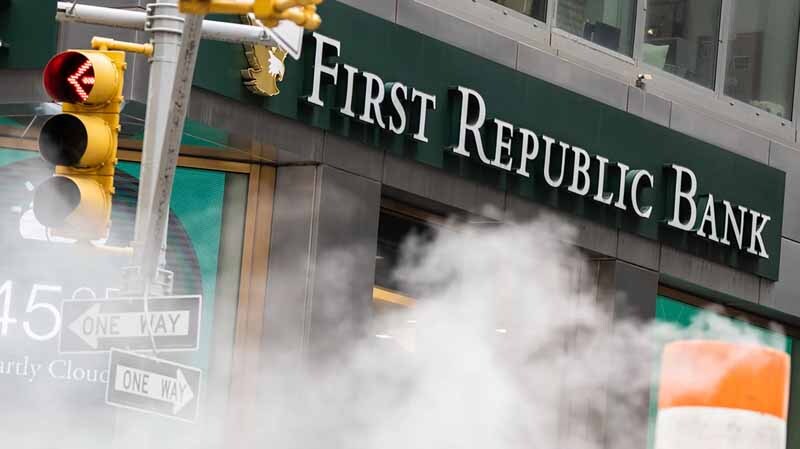 News Staff
News Staff![]() -
April 28, 2023 -
Business -
Bank failures
Bank Crisis
First Republic Bank
-
2.9K views -
0 Comments -
0 Likes -
0 Reviews
-
April 28, 2023 -
Business -
Bank failures
Bank Crisis
First Republic Bank
-
2.9K views -
0 Comments -
0 Likes -
0 Reviews

DLNews JTFMax:
According to multiple reports, the Federal Deposit Insurance Corporation (FDIC) is reportedly on the verge of taking control of First Republic Bank. ($233 billion in assets under management as of March 31, 2023.) The California-based lender, which focuses on serving wealthy clients, has been in trouble since its deposits evaporated last month following the collapses of Silicon Valley Bank and Signature Bank. That would be the most extensive banking bust in American history.
The lender’s survival appears increasingly unlikely, even after receiving a $30 billion infusion of deposits from 11 central banks last month. That show of support demonstrates the resilience of the US financial system, according to a joint statement from Treasury Secretary Janet Yellen, Federal Reserve Chair Jerome Powell, and FDIC chairman Martin Gruenberg.
Still, that support will soon end, and the First Republic may be forced to go under receivership. The news is a blow to investors, who had seen the stock climb nearly 70% last week after 11 of the country’s largest banks provided additional cash.
While it’s unclear what the outcome will be, FDIC Chairman Janet Yellen has worked on a plan with JP Morgan Chase and other big banks to stabilize the lender. If the bank goes into receivership, the Fed has said that it would probably backstop all deposits at the bank.
It’s also possible that the FDIC could make the whole uninsured deposits, as it did at SVB. But that will depend on how well the bank can recover from the crisis.
If the FDIC takes over the First Republic, it must replace its deposits with loans. That will be costly and likely damage the bank’s financial health, making survival even harder.
Investors who own shares of First Republic are worried that the bank will fail, which would send a shock wave through the banking industry and the economy. As a result, its stock plummeted on Friday, down 37% in after-hours trading.
The stock’s decline comes just days after the bank’s chief executive, Stephen Rattner, urged investors to take a wait-and-see approach and reaffirm their confidence in the financial system.
Earlier this week, First Republic reported that its total deposits plunged 41% in the first quarter. The loss prompted the bank to cut its revenue outlook. In addition, it announced that it planned to sell $100 billion of assets. It also plans to restructure its balance sheet and look for new ways to raise money.
The bank is looking to sell $100 billion of assets.
The troubled lender is reportedly considering selling up to $100 billion of assets to help stabilize its balance sheet. The sale of assets would reduce the bank’s asset-liability mismatch, a problem stemming from mortgages the First Republic held when interest rates were at historic lows, Bloomberg News reported Tuesday, citing people familiar with the matter.
One option is for the bank to sell mortgage-backed securities, allowing it to raise money by selling debt rather than paying customers their deposits in cash. Such sales are typically considered risky because they can lead to massive losses for the lender. But it might also help solve the asset-liability mismatch that left it so short of cash last month.
Another possibility is for the bank to divest its large inventory of jumbo mortgages, which were issued when interest rates were much lower. This would reduce the mismatch between its assets and liabilities, reducing its capital ratios to healthier levels.
The sales of those assets could also be used to raise fresh capital and fund a potential stock buyback. But such a sale will require the cooperation of the United States government to facilitate negotiations with some of the country’s biggest banks, according to Bloomberg.
As for a third option, the bank is considering asking big banks to help it raise funds by taking a slight loss on bonds it may issue. The idea is that this will help it avoid paying $30 billion in Federal Deposit Insurance Corp. fees to be taken over by the regulator if it goes under, Bloomberg reports.
These talks are ongoing, and DealBook hears that some banks are eager to get involved. But the exact contour of a rescue package is still being determined, with each group of players having its priorities and timelines.

Desert Local News is an invitation-only, members-based publication built on fact-checked, non-biased journalism.
All articles are publicly visible and free to read, but participation is reserved for members—comments and discussion require an invitation to join.
We cover local, state, and world news with clarity and context, free from political agendas, outrage, or misinformation.